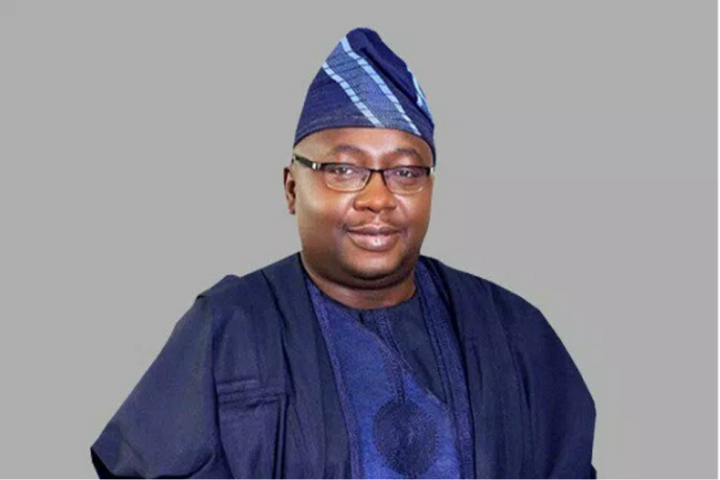Nigeria’s power sector is teetering on the verge of systemic collapse unless the government and electricity market stakeholders move swiftly to resolve mounting debts owed across the value chain. The Minister of Power issued the warning during a high-level address this past week, emphasizing that unresolved liabilities are eroding operational viability, discouraging investment, and undermining supply continuity.
The minister disclosed that legacy debt across GENCOs (generation companies), the Transmission Company of Nigeria (TCN), and DISCOs (distribution companies) now totals well over ₦2 trillion. These past obligations—ranging from unpaid generation invoices and fuel supply costs to transmission service fees and subsidy-related shortfalls—have stifled fresh investment, constrained liquidity, and triggered service disruptions in several regions. Without immediate settlement and structural debt resolution, the minister warned, Nigeria’s electricity sector could soon see widespread collapse.

He noted that many GENCOs are owed for power delivered but unpaid, while DISCOs continue to struggle under tariff shortfalls and weak payments from end-users. TCN’s operations are similarly hampered by non-collection of wheeling charges and delayed allocations, restricting its ability to maintain transmission infrastructure. In his address, the minister argued that these financial gaps weaken the entire market, discouraging debt financing and foreign direct investment at a time when grid expansion and renewable integration are critical.
The minister called for rapid fiscal action, urging the Federal Government to allocate special provisions from budgetary surpluses or reprogramme borrowings to settle cleared liabilities. He also urged state governments to collaborate on defaulting power purchase agreements or outstanding municipal bills, pointing out that coordinated participation is vital to restoring cash flow. “These debts cannot be allowed to linger,” he admonished. “They’re not just accounting entries—they represent culpable failure and social risk.”
Recognizing the complexity of the debt problem, the minister proposed the establishment of a “Sector Debt Resolution Fund” within the Federal Ministry of Finance. This dedicated pool would be used to purchase non-performing obligations from GENCOs or TCN at agreed valuations, to be serviced over a defined timeline. In return, new debt instruments or equity stakes could be structured to provide current stakeholders with payment security and long-term returns.
He also pressed for immediate implementation of the ongoing Electricity Act reforms to strengthen oversight, streamline subsidy provisioning, and establish more predictable mechanisms for regulatory cost pass-through. By granting regulatory agencies more autonomy and clarity over tariff structures, the minister argued, the sector could restore balance between affordability and viability.
Industry stakeholders have welcomed the call, aligning with warnings that failure to resolve debt could threaten Nigeria’s entire grid expansion strategy. Many engineering and operations executives in generation and transmission companies say they have deferred maintenance, delayed capital upgrades, and postponed dispatch planning due to looming liquidity constraints. As one source put it, “When your cash flow dries up, the machines, staff morale and investor appeal simultaneously die.”
Consumer groups and civil society organisations have also urged transparency in the debt resolution process. They highlighted the need for full disclosure of debts owed by government entities, distribution networks, and off-taker agreements to ensure accountability and prevent future recurrence. Calls are intensifying for publication of ownership details, creditor lists, and restructuring plans to avoid repeating previous cycles of sector underperformance.
Experts emphasize that simple debt forgiveness is insufficient without broader regulatory reform. They call for tightened metering compliance, digital monitoring of load consumption, smart billing, and improved meter replacements. These interventions could reduce losses, enhance revenue integrity, and improve collections—crucial conditions for debt sustainability once initial arrears are cleared.
At the same time, stakeholders stressed the importance of reforming tariff policy in tandem with subsidy reallocations. The minister proposed indexing tariffs to inflation and forex rates, backed by targeted social mitigations for households in hardship. Without a dynamic tariff framework that reflects real costs while providing relief to vulnerable consumers, he warned, the sector risks returning to bailouts and unpaid obligations every few years.
In parallel, private sector investors called for longer-term predictability around government power offtake commitments, fuel supply contracts, and dispatch guarantees. Equity and project finance firms are reportedly withholding fresh investments until the sector demonstrates credible liquidity pathways and enforceable government contracts.
If the debt problem remains unresolved, the minister cautioned, Nigeria may experience regional power outages, generator dependency, and capital flight from power infrastructure projects. At the same time, businesses and SMEs—already burdened by high tariff bands and erratic supply—may face further economic disruption.
The minister concluded by urging accelerated engagement among finance authorities, regulatory agencies, sector operators, and development partners to deliver a unified resolution plan. He called for immediate commencement of debt buybacks, sector finance instruments, and tariff reforms—all designed to rehabilitate the sector before operational breakdown becomes irreversible.
Without urgent clarity and debt resolution, the minister’s blunt warning suggests the power sector may tip from fragility into failure—a state with far-reaching implications for Nigeria’s economy, industrial growth, and public welfare.
Support InfoStride News' Credible Journalism: Only credible journalism can guarantee a fair, accountable and transparent society, including democracy and government. It involves a lot of efforts and money. We need your support. Click here to Donate
